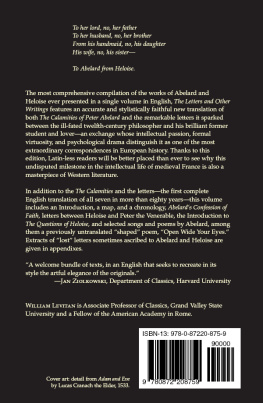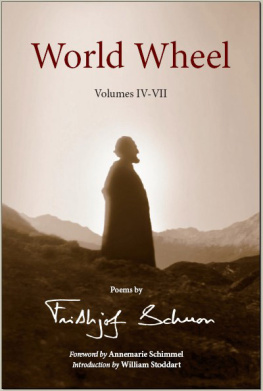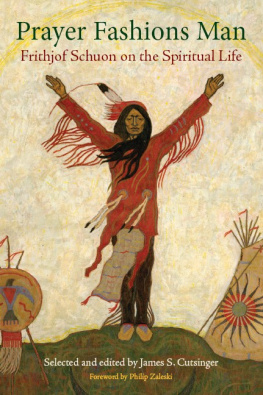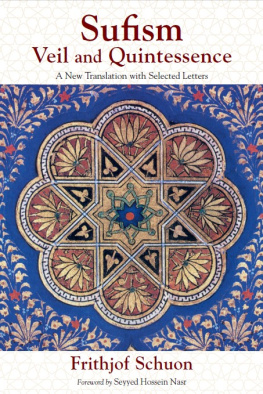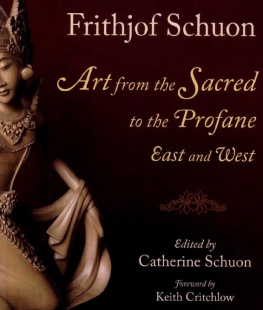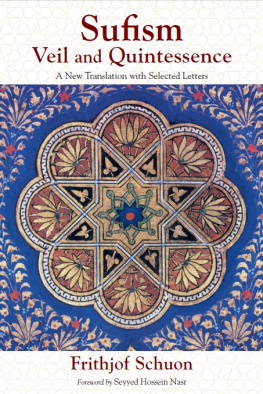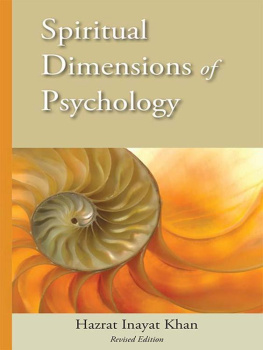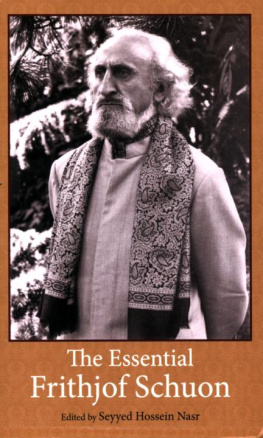APPENDIX
Selections from Letters and Other Previously Unpublished Writings
1
It is typical of the European bourgeois culture that everything is overadorned: it is indeed incredible to see how much knowledge and expertise is pumped into menall for nothingand how much time and effort and thinking is spent on things which are not at all proportioned to such an effort; seen in purely mental terms, the knowledge of an Aristotle cannot be compared to the contents of the mind of a child who goes to the conservatory, but who before God is not one hundredth of what an Aristotle is! This lack of the sense of proportions, this cult of the excessive, of the overadorned is also, as just mentioned, a distinguishing feature of Western degeneracy. On the other hand, it is clear as day that a person, who needs Etudes and Nocturnes for his inner equilibrium, has no sense for natureI mean for nature as it is in itself, not seen as the background for a psychic life that is artificial, overwrought, and civilized.
2
If I sharply reject the modern world as suchalthough I am only partially in agreement with Gunons Orient et Occidentit is because I am fundamentally opposed to philosophical rationalism and also to artistic naturalism; both are hallmarks of classical Greece and appeared anew as the Renaissance. There are two things here that I would like to note: it is false to see in Plato a rationalist in the modern sense of the term; Anaxagoras and Protagoras could not stand farther apart from him; influenced by Egypt, he also criticized naturalistic art. Paradoxically, there was also a renewed interest in Plato and Plotinus in the Renaissance; also good poetry and good music. Be this as it may: that I reject modernism as a general phenomenon does not mean, quite obviously, that I do not recognize isolated instances of individual worth in these latter times. But no one, in full awareness of the facts, could deny that the main characteristic of our time is a desacralization of the whole world.
3
Cosmology is a general term which belongs to the metaphysical perspective as well as to the creationist viewpoint and to modern science. So we can distinguish between a cosmology which is metaphysical, another which is theological or creationist, and a third which is materialistic. Given that the theory of evolution is intrinsically false, there can be no question of a reconciliation of these views.
Evolution exists in the sense that a seed becomes a root and then a tree, but not in the sense that an oak tree becomes a pine tree. Evolution is the unfolding of a given virtuality and not the passage of a given possibility to a quite different possibility. Modern science is right when it describes the succession of geological periods but not when it tries to describe the origin of life or of intelligence. Modern cosmology cannot be something other than geology, paleontology, and astronomy; and there exists not the least difficulty in combining them either with Semitic creationism or with Indo-Greek emanationism, for the simple reason that facts are always compatible with principles.
The metaphysical viewpoint is scientific, and so is the geological, paleontological, and astronomical viewpoint. As for the creationist viewpoint, it is not scientific, but symbolist.
4
Your classification is certainly plausible according to a certain perspective; but it is no less plausible that differences in perspective can bring about differences in the allocation of the symbols, if one may say. For example, Gunon paradoxically attributes childhood to the North and to winter, youth to the East and to spring, maturity to the South and to summer, and old age to the West and to autumn; one could just as easily attribute childhood to the East and to spring, youth to the South and to summer, maturity to the West and to autumn, and old age to the North and to winter; for childhood, like spring, is incontestably the time of blossoming forth and of joy; summer is the time of heat, love, passion, which corresponds aptly to youth; maturity, like autumn, is the time of the harvest, plenitude, achievement; and old age, which has always been compared to winter, is the time of detachment, contemplation, purity.
Gunon wrote to you that he doubts that one can establish a strict correlation with the faculties; I suppose he has mental faculties in mind. But one can hold a different opinion and attribute reason to the North, sentiment to the South, imagination to the East, and memory to the West. For reason is cold, static, and objective; sentiment is warm, dynamic, and subjective; imagination is active and creative; memory is passive and conservative.
To return to the quaternity of ages apportioned to the cardinal points, I shall add that, astrologically speaking, the cycle of the signs of the zodiac begins in the spring with childhood, and ends in winter with old age. Be that as it may, the fact that each thing contains several aspects is enough to account for the divergences of perspective.
5
Man is endowed with a speculative intelligence and a practical intelligence; he is likewise endowed with a spiritual will and a moral will.
The speculative intelligence is necessarily prolonged in and by the spiritual will; the Truth requires a Path.
On the other hand, the practical intelligence and the moral will must be conformable with both the spiritual will and the speculative intelligence, for man is a priori a homogeneous being; all the same, anomaly is a possibility with fallen man. Thus, the practical sense may be more or less underdeveloped, which implies a certain lack of sense of proportion; the moral sense, for its part, may be perverted and consequently incompatible with the spiritual life. A lack of practical intelligencenot rare with certain contemplativesis a relative inconvenience, but not a vice; it may have outward causes, just as it may be the psychological price of a highly developed contemplativity. A lack of moral sensitivity, on the contrary, has not the benefit of any compensating quality, especially as it always implies elements of selfishness, pride, and hypocrisy; there are excuses for weakness, but not for ugliness. Be that as it may, faults of soulbe they major or minorare curable, for where there is a will, there is a way; and nothing contingent can withstand the rays of the Absolute.
6
We should not be astonished if we notice defects of character, or even vices in a person whose parents are normal or virtuous, for if there were saints whose parents were bad people, the reverse must also be possible, namely that there be bad people whose parents were saints. A persons traits of character have two possible sources: either the individual substancethe origin of which no one knowsor heredity; when a character cannot be explained by heredity, then this means that it is entirely specific to the individual. For a child is not just the product of his parents; he contains something new that derives from himself, otherwise there would never be exceptional men, and otherwise a quality or a defect would always belong to the entire paternal or maternal line, all the way up to the ancestors and up to Cain and Abel. The core of the problem, metaphysically speaking, is All-Possibility; evil cannot not exist since the world is not God; for it must needs be that offences come, although there is also the parable of the prodigal son. All that we can do in such cases is to pray for the person who has gone astray; this is what Saint Monica did, the mother of Saint Augustine; you could also pray for your grandchildren.
What matters for us is to practice resignation on the one hand and trust on the other hand: resignation to the Will of God and trust in His Mercy.


